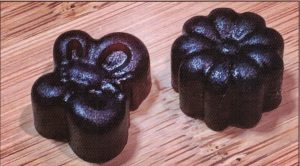As with any other medical decision, making the choice to use, or even try, medical cannabis is very personal. Before coming to this decision, you may speak to friends, family members, your doctor(s), or people who have become educated about cannabis. But what if your doctor is not part of the decision? How do you approach him/her and let them know your interest in or decision to try medical cannabis? How do you have cannabis conversations with doctors?
When a student is in medical school, cannabis is usually only covered under the “illicit drugs” area of the curriculum. Future physicians are not educated about the endocannabinoid system, components of the plant, or how or why it is useful in treating a number of ailments. If a doctor is interested in gaining knowledge about cannabis, they have to seek it out on their own. Because of this, it is easily understandable why many doctors may seem trepidatious or even reluctant about cannabis as medicine. They just weren’t educated on it.
Since cannabis is still a Schedule 1 drug, no doctor can “prescribe” it. It has to come in the form of a “recommendation” by those doctors who sought out medical cannabis licensure. In Florida, that consists of a two hour course from the Department of Health. At the moment, there are over 1,300 doctors in the state who have the ability to recommend cannabis, however, not all of them are currently doing so.
HOW TO APPROACH YOUR DOCTOR
So if you are interested in or have chosen to use cannabis as a treatment option, how do you have that conversation with your doctors? And what do you do if it doesn’t goes as well as you had hoped?
Be open and honest
If you are interested in cannabis as a treatment option, let your doctor know. Explain that you have heard that it can help with multiple ailments and is also a preventative medicine.
If you are a current medical cannabis patient and are using it to treat your health, I can’t emphasize enough how important it is to let your doctor know that you are doing so … even if they don’t agree with it. Yes, there is the potential of having a very awkward conversation with them, but they need to know if you have changed anything in your recent health routine. This is definitely one of those changes.
Show him you did your homework
Let your doctor know that you have educated yourself on medical cannabis, how and why it works, and how you think it may help your particular circumstance. Don’t be adverse to bringing a copy of Revive Magazine to share with him as well as other articles that you may find online (www.leafly.com is a good place to start educating yourself and your doctor).
If you are a current medical cannabis patient, I always advise keeping a patient journal (click here to learn about patient journals). This is beneficial for both you and your doctors as it gives a first-hand account or testimonial of how you, your body, and your illness have responded to the introduction of cannabis to your health and wellness regimen. At this point, if your doctor sees that your blood pressure is consistently lower or your pain is a little more tolerable, he may want to adjust your medications. This is exactly the reason it is so important to be open and honest.
THREE POTENTIAL OUTCOMES
“That’s great. Let’s work together to get you feeling better:”
In a perfect world, this is what would be said every time. Some doctors know the benefits of medical cannabis and have absolutely no problem with their patients using it. In fact, they may even encourage it or even suggest it. If this is the case, you are on a road to better health.
“Interesting... Tell me more."
Some doctors are open to the possibility of having their patients use medical cannabis but they just don’t know enough about it to make an educated decision. They know it can help but they don’t know the how/why and the science behind it. These doctors will often look to you for information and education which makes this another favorable outcome. At that point, teach them and work together as a team.
“You want to try WHAT?!”
This is what we are afraid of. What if my doctor is vehemently against medical cannabis? Again, between the lack of education about medical cannabis and the years of horrendous propaganda surrounding it, some doctors want nothing to do with it. My first suggestion is to try and teach them what you can. Explain your reasoning behind why you want to seek cannabis as a medical treatment. If they are still opposed, you may want to look at the option of finding another doctor to work with. After all, physicians take the Hippocratic Oath to uphold specific ethical standards which include: treat the sick to the best of one’s ability, preserve patient privacy, and prevent disease whenever I can, for prevention is preferable to cure. If they are not living up to that oath, then your best interest is not their priority.
No matter what the outcome of your cannabis conversation with your doctor is, it can be very scary and intimidating to approach him in the first place. But when it comes to your health and wellness, you and your physicians should be a team, all working together towards one common goal: better health and quality of life for you, the patient.





